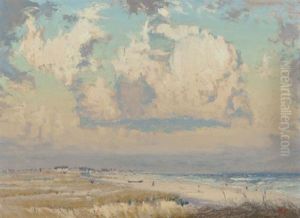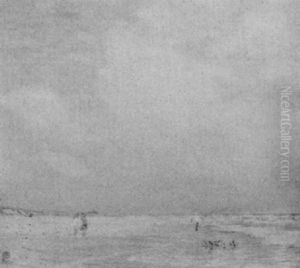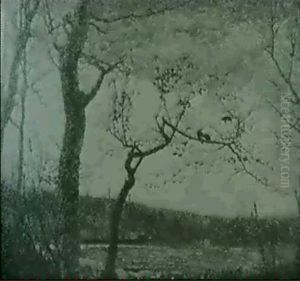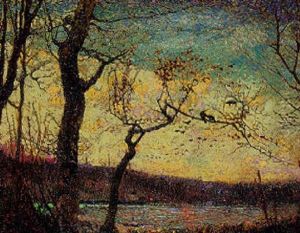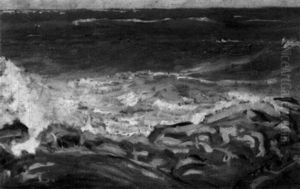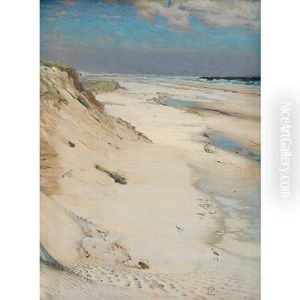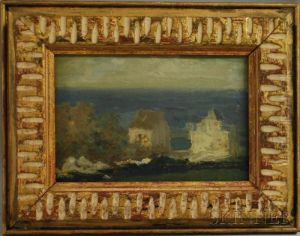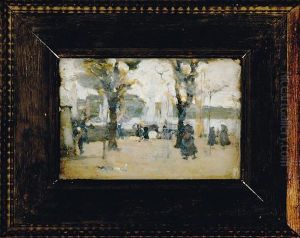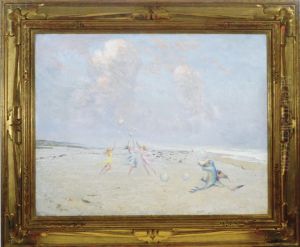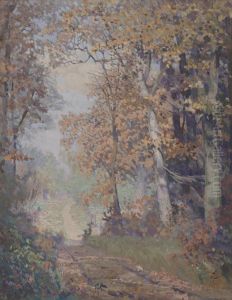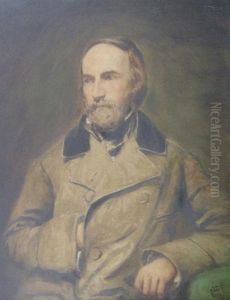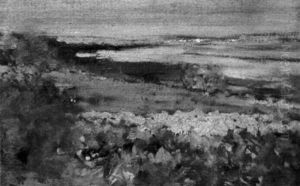Richard Blossom Farley Paintings
Richard Blossom Farley was an American artist, born in 1875. He is not widely known in the canon of art history, and as such, detailed information about his life and work is relatively scarce. Farley's artistic period was during a time when American art was in a state of transition, moving away from the academic traditions of the 19th century and beginning to explore new ideas and forms that would lead to the modernist movements of the 20th century.
Farley's work was primarily focused on landscape painting, a popular genre in America at the time due to the country's vast and varied scenery. He was particularly known for his ability to capture the atmosphere and light of the natural environments he depicted, suggesting that he was influenced by the Impressionist movement that had taken hold in Europe earlier. Despite the lack of extensive records on his education, it is possible that Farley received formal training, as was typical for artists of his era, which would have provided him with the foundational techniques he later employed in his work.
Throughout his career, Farley may have exhibited his work at various local and regional art shows, but it seems he did not gain significant national recognition or influence. The early 20th century was a vibrant time for American art, with the advent of Ashcan School painters, the Armory Show of 1913, and the blossoming of American modernism. Farley's landscapes would have been somewhat traditional in this rapidly changing art scene, possibly leading to his relative obscurity in broader art historical narratives.
Richard Blossom Farley passed away in 1954. Although his name does not feature prominently in art history texts, his paintings may still be appreciated by a select group of collectors and enthusiasts who value the quiet beauty and technical skill of his landscape works. The lack of widespread fame does not diminish the importance of Farley's contribution to the arts during his lifetime, as each artist plays a role in shaping the cultural and aesthetic tapestry of their time.
